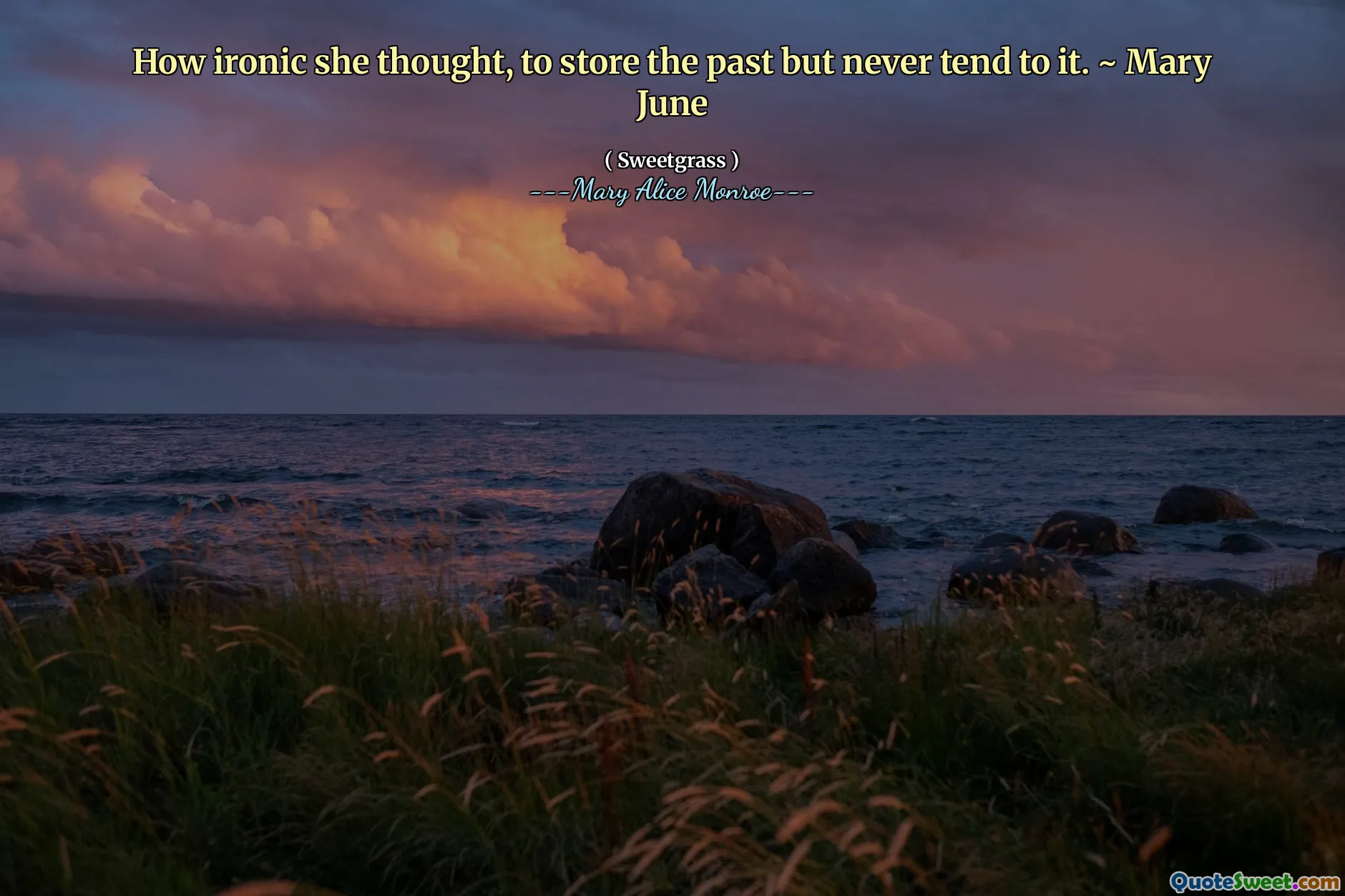
How ironic she thought, to store the past but never tend to it. ~ Mary June
The quote reflects a sense of irony in the act of preserving memories while neglecting to engage with them. It highlights how people often cling to their past experiences, keeping them alive in some form, yet fail to reflect on or learn from these memories. This contradiction emphasizes the need for emotional and personal growth, suggesting that merely holding onto the past is not enough for true understanding or healing.
This sentiment resonates throughout Mary Alice Monroe's book "Sweetgrass," where the characters grapple with their histories. It encourages readers to consider the importance of actively processing their past rather than passively storing it. The idea of tending to one's memories urges a deeper exploration of how past experiences shape present identities and relationships.








